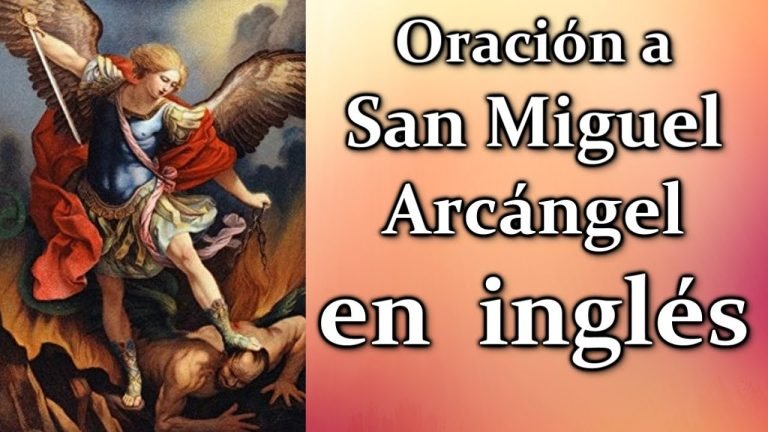Understanding the Leviathan in Scripture
The concept of the leviathan in scripture has captivated theologians and scholars for centuries, symbolizing chaos and divine power. Often depicted as a formidable sea creature, this enigmatic figure appears in various biblical texts, representing the struggle between order and disorder in the cosmos. From the poetic imagery in Job to its mention in Psalms, the leviathan serves as a powerful metaphor for the challenges humanity faces in the pursuit of faith and understanding. This article delves into the multifaceted interpretations of the leviathan, exploring its significance within the biblical narrative and its enduring impact on religious thought.
What is the reason for God’s creation of Leviathan in the Bible?
In the Book of Job, the creation of Leviathan serves as a powerful testament to God’s unmatched strength and authority. Amidst Job’s suffering and trials, God chooses to remind him of the wonders of the world, illustrating his divine power through the imagery of Leviathan, a creature so formidable that it challenges the very notion of human control. This magnificent being embodies the mysteries of creation, highlighting both the beauty and terror of the natural world.
By invoking Leviathan, God reaffirms His sovereignty over all creation, asserting that even the mightiest creatures exist under His dominion. Job’s journey reflects a struggle with faith, yet through the grandeur of Leviathan, God emphasizes that His plans and purposes extend far beyond human understanding. In this way, the leviathan becomes not just a symbol of chaos, but also a reminder of divine wisdom that governs the universe, urging Job—and the reader—to recognize the limits of human perspective in the face of divine majesty.
What is mentioned about Leviathan in the Book of Revelation?
In the book of Revelation, Leviathan reemerges as a formidable symbol, manifesting as the “beast that comes up out of the sea.” This imagery captures the essence of chaos and power, representing forces that challenge divine order. The text depicts this creature rising from the depths, evoking fear and intrigue, as it embodies the tumultuous nature of the world and the spiritual battles faced by humanity.
The description of Leviathan parallels ancient narratives, where it is often portrayed as a monstrous entity opposing God’s creation. In Revelation 13:1-10, the beast is endowed with authority and blasphemy, reflecting the ultimate struggle between good and evil. Its emergence signifies a period of tribulation, where believers must confront the overwhelming presence of darkness and deception that seeks to undermine faith.
Ultimately, the portrayal of Leviathan in Revelation serves as a reminder of the ongoing conflict between divine purpose and earthly chaos. As followers navigate this tumultuous landscape, the imagery of the sea monster urges them to remain steadfast in their faith, knowing that the battle is not just against flesh and blood, but against the powerful forces that seek to disrupt the harmony established by God.
What does Leviathan represent in Psalm 104:26?
In Psalm 104:26, Leviathan emerges as a symbol of the vibrant life within God’s creation, embodying the joy and wonder of the natural world. Rather than a fearsome monster, Leviathan is portrayed as a creature that revels in the depths of the sea, reflecting the playfulness and delight inherent in God’s creative work. This perspective invites us to appreciate the beauty and purpose of all creatures, highlighting that even the most formidable beings have a role in the harmonious tapestry of life.
Unraveling the Myth: The Leviathan’s Role in Biblical Texts
The Leviathan, often depicted as a monstrous sea creature, has captivated the imaginations of scholars and theologians alike, serving as a symbol of chaos and divine power in biblical texts. Contrary to the prevailing notion of it as merely a figure of destruction, the Leviathan embodies the complex relationship between God and creation, illustrating the theme of order emerging from chaos. Its appearances in scriptures like Job and Psalms highlight not only the creature’s formidable nature but also God’s sovereignty over all creation. By unraveling the myth of the Leviathan, we gain deeper insight into the ancient worldview that saw this creature as both a formidable adversary and a testament to divine might, inviting readers to reflect on their own understanding of power and chaos in the world around them.
The Symbolism of the Leviathan: Chaos and Creation in Scripture
In biblical literature, the Leviathan emerges as a powerful symbol embodying the duality of chaos and creation. Often depicted as a monstrous sea creature, it represents the primal forces of nature that challenge divine order. The imagery of the Leviathan evokes the tumultuous depths of the ocean, suggesting a world teetering on the brink of disorder. This chaos is not merely destructive; it serves as a catalyst for transformation, highlighting the necessity of confronting and harnessing the chaotic elements of existence to achieve divine purpose.
Conversely, the Leviathan also signifies the potential for creation that arises from chaos. In various texts, it is portrayed not only as a threat but as a creature that contributes to the richness of the world, emphasizing the balance between destruction and renewal. This duality invites readers to reflect on the complexities of life, illustrating how chaos can lead to profound growth and understanding. Ultimately, the Leviathan serves as a reminder that within the turbulent seas of our experiences lies the potential for new beginnings, urging us to embrace the challenges that pave the way for creation and deeper insight.
From Sea Monster to Spiritual Metaphor: The Leviathan Explored
The Leviathan, often depicted as a colossal sea monster in ancient texts, has transcended its mythological roots to become a powerful symbol of chaos and untamed nature. This creature, with its serpentine form and fearsome presence, captures humanity’s fascination with the unknown depths of the ocean. In literature and art, the Leviathan embodies the primal fear of the vast, mysterious waters that threaten to overwhelm both the individual and society. Its portrayal serves as a reminder of humanity’s vulnerability in the face of nature’s formidable forces.
Over time, the Leviathan has evolved from a literal beast of the deep into a rich spiritual metaphor, representing the struggles of the human spirit against chaos and adversity. Various interpretations have emerged, viewing the Leviathan as a manifestation of inner turmoil or societal challenges that must be confronted and understood. This transformation highlights the duality of the Leviathan, serving both as a cautionary tale of nature’s wrath and a profound reflection on personal and collective growth. In this way, the Leviathan remains an enduring symbol, reminding us of the delicate balance between humanity and the wild, unpredictable world around us.
Biblical Insights: The Leviathan’s Significance in Faith and Theology
The Leviathan, often depicted as a formidable sea creature in biblical texts, serves as a powerful symbol in faith and theology, representing chaos and the untameable forces of nature. Found primarily in the Book of Job and Psalms, this creature embodies the struggle between divine order and the primal chaos that exists in the world. The imagery of the Leviathan challenges believers to confront their fears and uncertainties, reminding them of God’s sovereignty over creation. Through its portrayal, the Leviathan invites deeper reflection on the nature of evil, the limits of human understanding, and the profound mystery of faith, ultimately highlighting the importance of divine grace in navigating life’s turbulent waters.
Navigating the Waters: The Leviathan’s Impact on Scriptural Interpretation
The concept of the Leviathan, as depicted in various scriptural texts, serves as a powerful metaphor for the complexities of human governance and divine sovereignty. In many interpretations, this formidable creature embodies chaos and order, illustrating the tension between the earthly authority of rulers and the ultimate power of the divine. This duality prompts scholars and believers alike to reflect on their understanding of leadership, morality, and the role of faith in guiding human actions.
As readers engage with the imagery of the Leviathan, they often find themselves grappling with questions of justice and accountability. The creature’s representation challenges traditional notions of power, suggesting that rulers must navigate their responsibilities with humility and reverence for higher principles. This struggle to balance authority with ethical considerations has profound implications for scriptural interpretation, inviting deeper exploration of texts that address human conduct in the face of overwhelming power.
Ultimately, the Leviathan serves as a lens through which we can examine our contemporary societal structures. By analyzing its impact on scriptural interpretation, we gain insight into how ancient texts continue to resonate in modern discussions about governance, ethics, and the nature of power. This ongoing dialogue encourages a reevaluation of our values, pushing us to seek wisdom and justice in our own lives as we navigate the turbulent waters of existence.
The portrayal of the leviathan in scripture serves as a powerful symbol, embodying chaos, strength, and the mysteries of creation. Its vivid descriptions and multifaceted interpretations invite readers to explore deeper theological themes and engage with the complexities of faith. As a timeless figure, the leviathan continues to inspire both awe and contemplation, reminding us of the profound narratives woven throughout sacred texts.







